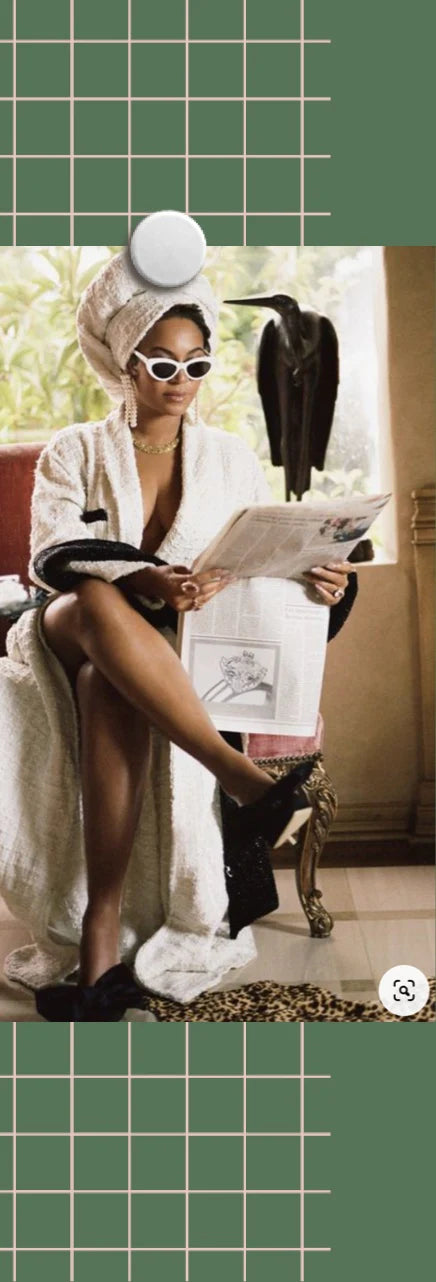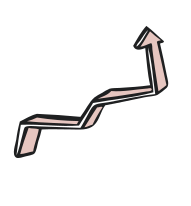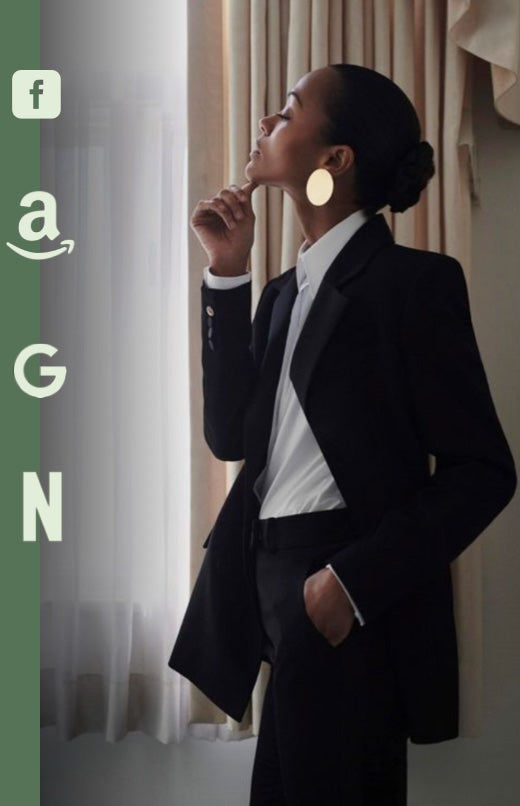







Fashion Quarterly - Why you should tune in to Raising The Curve: a podcast about investing

Today along with co-founder Sophie Hallwright, Victoria Harris is launching the podcast series Raising The Curve. We talk to Harris about her start in finance, why women need to talk about investing, and what’s in store for Raising The Curve.
View article on Fasion Quartely
Despite the progress New Zealand women have made in the name of gender equality, we still have a way to go, says Victoria Harris. Women are less likely to have financial conversations attributed to growing wealth, and according to Harris, there are many reasons for this. Not only are women are under-represented in financial sectors, but they also tend to focus on life goals that can be achieved with money instead of amassing wealth as the end goal itself.
This predicament is why Harris and co-founder Sophie Hallwright launched educational platform The Curve, aiming to equip women with the knowledge and confidence to achieve wealth and financial freedom. With their podcast Raising The Curve launching today, we talk to Harris to find out more.
What does a typical day look like for you?
I am an early bird and love mornings, so my mornings generally start at 5.30 am. When I arrive at the office (coffee in hand), I read the news and see what’s happened in the world overnight. Being on top of the news is vital in finance as it allows you to spot investing trends or headlines that may make you rethink an investment you have already made.
From then, every day is different. The NZ market opens at 10 am, and the Australian market opens at midday. You never know what is going to happen. Will it be up? Will it be down? Which companies will make announcements? That’s what I love about my job – no two days are the same.
It’s also not sitting behind a screen, and crunching numbers like most people think. It’s just as much getting out-and-about and meeting companies, brokers, analysts etc.
More recently, my evenings and weekends are reserved for research and admin for The Curve – that’s my passion.
Tell us about your career journey to date and how you came to work in finance.
I have always been interested in business. From as early as seven years old, I had a stall selling herbs from my mum’s garden on the side of the road. However, I didn’t become interested in finance until University. To be honest, I didn’t know a lot about finance but thought it was a natural fit into my Commerce degree. From my first lecture, I was hooked. I could really see how finance and investing were used in the real world.
I started as a graduate at Milford Asset Management which was a steep learning curve! I thought I knew a lot but quickly realised I knew very little. Since working in Sydney and London, I have travelled a lot, visited companies and people I never thought I would meet and worked with some fantastic people across some of the top fund management companies in New Zealand.
I now wear two hats; I am Portfolio Manager at Devon Funds and co-founder of The Curve.
What is it like working as a female in your industry? Are there challenges or positives that come with being a minority gender?
It has its pros and cons. There still are very few of us, and I have faced too many situations to count where I was the only female in the room. That used to intimidate me when I was younger; now, I thrive off it.
You get remembered (which can be good and bad!) by the companies you meet; you bring a different way of thinking, you can see trends others may not – so there are many advantages.
Tell us more about the gender investing gap.
Historically, men have been the breadwinners of the household. This is changing with more women in the workforce.
However, women are still left behind in investing conversations, creating an investing knowledge gap. Women tend to view investing as a mountain too big to climb, so don’t start. However, women should be concerned about investing and building their wealth the most.
Why are females less likely to invest than men? And what about Millennials and Gen X? How do their behaviours differ?
Because women are often left out of investing conversations, they can sometimes feel like they have missed the opportunity or are so far behind that the mountain is too big to climb. With increased confidence and knowledge, we can change this.
Investing conversations are being had earlier with every generation, which is excellent. The younger generation is now brought up with great investing platforms like Hatch and Sharesies (both founded by women); investing is being discussed earlier and earlier – increasingly breaking down those barriers.
How do you hope The Curve might help to bridge the gender investing gap?
Each of us is busy, with little patience for complicated graphs and jargon-heavy information. Yet, the pursuit of financial know-how and increasing your wealth is actually a simple one.
That’s why we created The Curve – a safe space for women to get investment-savvy without the noise and confusion. It is a place for women to learn about investing in a way that makes sense to them and their lifestyles. We provide all women, no matter what stage of knowledge, the platform, tools and community support to achieve their financial goals.
What are the most common questions you get asked by your peers about investing?
The most common one is ‘Where do I start?’.
And that is why we created The Curve: I found the industry lacked a go-to place for women to start their investing journey.
Another common one is ‘What should I invest in?’.
Many people invest in products/services they and plenty of others use or trends they can see, for example, eCommerce, cloud computing, and sustainable fashion.
What’s the best piece of advice you’ve received about managing your own finances?
There are three pieces of advice I apply to my personal finances:
1. Start yesterday. Due to compound interest, every day you wait is costing you money; and
2. Invest in what you know. Invest in products you use, (e.g. Apple), brands you use (e.g. Lululemon), service providers you think are great (e.g., Xero). Leave the stuff you don’t understand to others; and
3. Investing is not without risk. Often, you need to take on risk to generate a return. Life is all about taking risks; in business, relationships and investing.
How can investing and tapping into underleveraged capital help us to lead the life we want
There are so many small changes you can make today that will make a massive difference to your lifestyle and retirement. Due to compound interest (interest on interest on interest), if you have $20k in your KiwiSaver account, in a fund generating 5%/year over 30 years, you may likely receive around $90k at 65 years of age. If you moved this to a 10%/year returning Fund, you could possibly achieve $500k at retirement. That’s a difference of $400k! If you kept this $20k in the bank in a term deposit generating 1% per year – again, you can figure out the type of retirement lifestyle you could likely achieve.
Can you tell us more about your upcoming podcast and the topics you’ll be covering?
We launched our investing podcast, Raising The Curve, today!
We are so excited to release it to our community. It is a conversation style between The Curve’s co-founder Sophie Hallwright and me. We approach all topics to do with investing in a relatable, digestible and conversational way. We will cover; investing 101, different asset classes, risk and return, property vs shares, what’s a share price, what moves the market – the topics are endless!
Can you tell us about any upcoming guests you’ll have on the podcast?
We are keeping tight-lipped about this for now. Still, I can guarantee you the lineup for Season 2 is impressive, including women in business to expert fund managers and industry players.
Do you have any advice for females starting out or wanting to work in finance?
Don’t be intimidated. It’s not as scary as it seems; investing or working in the industry. Don’t let your fear or lack of confidence be why you get left behind in the investing journey. There are so many great opportunities you get from working in the finance industry. And the more female investors there are, the sooner we can break down the barriers.\
What’s your go-to office outfit?
I’m always wearing Harris Tapper. I love a comfortable suit that I can also wear straight out to dinner after the office, and everything they design is perfect for this.
Disclaimer: This article is intended to provide general information only. It does not take into account your investment needs or personal circumstances. It is not intended to be viewed as investment or financial advice.


